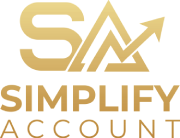
Introduction
Payroll Compliance in Australia: Comprehending the legal landscape is crucial for compliance in Australian payroll. Several key laws govern payroll and employment. Let’s explore three important Legal Acts that employers must familiarize themselves with.
Fair Work Act
Firstly The Fair Work Act 2009 establishes minimum requirements for employee compensation and working conditions, including the National Employment Standards (NES). It covers aspects such as maximum weekly hours, annual leave, personal leave, public holidays, and more. The Act also sets out provisions for unfair dismissal, redundancy, workplace bullying, and industrial action.
Income Tax Assessment Act
Secondly this Act governs the calculation of taxes and deductions. It provides guidelines on how employers should withhold income taxes and remit them to the Australian Tax Office (ATO). Employers need to accurately calculate the amount of tax to withhold based on employees’ income levels and tax brackets.
Superannuation Guarantee (Administration) Act
This Act mandates that employers contribute a percentage of their employees’ earnings to a compliant superannuation fund. Employers must ensure that they calculate and make the correct superannuation contributions on behalf of their eligible employees, meeting the deadlines for making these contributions.
Payroll compliance in Australia: Payment Obligations
Payment obligations are crucial in ensuring that employees receive their rightful compensation. Let’s explore three key aspects of payment obligations in Australian payroll compliance.
Minimum Wage Standards
Employers must pay their employees at least the federal minimum wage, which the Fair Work Commission sets and reviews annually. Different occupations or industries may have different minimum wages dictated by various awards and agreements, and employers must comply with the appropriate rates for their employees’ classifications.
Overtime and Penalty Rates
Employees may receive overtime and penalty rates for working beyond standard hours or during evenings, weekends, or public holidays. Employers must accurately calculate and apply these rates to ensure employees receive correct compensation for their work.
Leave Entitlements
Employees have the right to take time off for personal illness, vacations, or parental responsibilities. Employers must track and manage employees’ leave balances, adhering to relevant legislation, awards, and employment contracts.
Taxation and Superannuation
Understanding tax regulations and superannuation requirements is essential for employers to maintain compliance. Let’s explore three key aspects of taxation and superannuation in Australian payroll compliance.
Withholding Taxes
Employers have the responsibility to withhold income taxes from their employee’s pay and remit them to the Australian Tax Office (ATO), deducting the correct amount of tax from employees’ wages based on their income and the applicable tax brackets.
Superannuation Contributions
Employers are obligated to make superannuation contributions on behalf of their employees, contributing a percentage of their ordinary time earnings to a complying superannuation fund.
Fringe Benefits Tax
Lastly certain benefits provided to employees, such as company cars or housing allowances, may be subject to the Fringe Benefits Tax (FBT), a tax paid by employers on the value of these fringe benefits provided to their employees.
Payroll Compliance in Australia: Keeping Records
Keeping meticulous and accurate payroll records is a legal requirement and a best practice for employers. Let’s look deeper into two important aspects of record-keeping in Australian payroll compliance.
Payroll Record Requirements
Employers are responsible for maintaining comprehensive payroll records that capture essential information related to employee compensation and working conditions, including details such as hours worked, leave taken, and payments made to employees.
Annualized Salary Reporting Requirements
Employers face penalties for failing to comply with annualized wage agreements across different awards, requiring an annual reconciliation of their entire workforce’s annualized wage agreement.
Pay Slips and Employment Records
Employers are legally obligated to provide employees with payslips within one working day of their payday, containing crucial information such as gross wages, tax withheld, superannuation contributions, and any deductions or allowances.
Payroll compliance in Australia: Reporting Obligations
Reporting obligations are essential for employers to fulfil their responsibilities and provide accurate information to relevant authorities. Let’s explore three significant reporting obligations in Australian payroll compliance.
Single Touch Payroll (STP)
Under STP, employers are required to report salary, wages, taxes withheld, and superannuation information directly to the ATO at the same time or before making payroll payments, facilitating efficient communication between employers and the ATO.
PAYG Withholding
The PAYG withholding system requires employers to withhold money from payments made to employees, contractors, and other businesses, therefore accurately calculating the amount of tax to withhold based on employees’ earnings, deductions, and any applicable offsets.
Superannuation Payments
Employers have reporting obligations regarding superannuation contributions made on behalf of their employees, thus providing accurate details of the contributions made, such as the amount and the employee’s superannuation fund details.
Audits and Inspections
Additionally Audits and inspections play a crucial role in ensuring compliance with payroll regulations in Australia.


